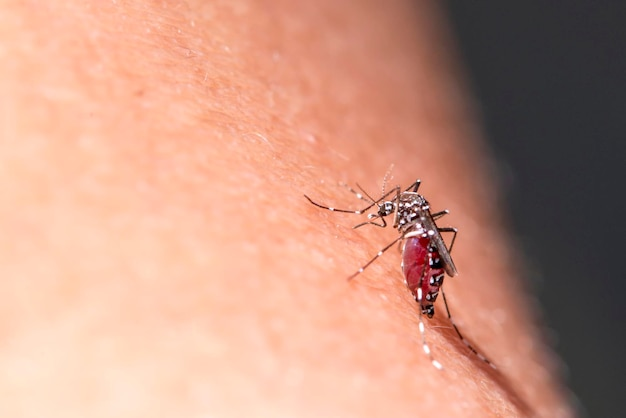Dengue fever is a worrying mosquito-borne disease that affects many people in India. This makes it crucial to act on early dengue fever diagnosis and prevention. But how can we be prepared? This guide aims to increase awareness by helping you recognize key dengue symptoms early. Being aware can help reduce dengue fever complications and encourage community action. By staying informed, you contribute to your health and your community’s well-being.
1. Unveiling Dengue Fever and Recognizing Early Symptoms
Dengue fever starts when a particular mosquito, carrying the dengue virus, bites someone. The illness starts quietly but can become severe if ignored. The main dengue symptoms that appear first include:
- High fever
- A severe headache
- Pain behind the eyes
- Fatigue
These early dengue symptoms can often go unnoticed. Many mistake them for flu or a simple viral infection. However, spotting these signs is essential for a better dengue fever treatment plan.
As the disease progresses, other dengue symptoms can develop. Be alert for:
- Nausea and vomiting
- Aches and muscle pain
- Skin rashes
Early recognition of these signs is vital. It increases the chances of effective dengue fever medication and reduces the risk of severe dengue fever complications. Knowing what to look for can make a huge difference to poorer health outcomes.
Understanding the dengue fever origins and how a mosquito transmits it is important, too. Staying informed will help you spot early warning signs and seek timely dengue fever diagnosis and dengue fever treatment. Recognizing these dengue symptoms promptly will improve your health and quicken recovery. Encouraging those around you to be aware helps protect your community from outbreaks and severe cases.
2. Immediate Steps and Prevention Strategies for Dengue Suspects
When you suspect dengue fever, it’s crucial to monitor your condition accurately. First, recognize any triggering dengue symptoms. Then, here’s what you should do:
- Keep track of any new symptoms and their progression.
- Seek medical advice promptly if symptoms worsen.
- Stay hydrated to manage fever and prevent dehydration.
- Rest as much as possible.
It’s wise to consult healthcare providers for a well-informed dengue fever diagnosis. Knowing the available tests in India helps confirm the diagnosis effectively. Once dengue fever diagnosis is confirmed, a healthcare provider can guide you through dengue fever treatment options, which may include specific medications and symptom management strategies.
In addition, engaging with community initiatives can support timely dengue fever prevention. These programs often help with faster diagnoses and interventions. Participating in such initiatives promotes, not just individual health, but also enhances communal safety against chronic dengue fever complications. Vital community actions create a network of timely support that can lessen both the spread and severity of dengue fever.
3. Community Vigilance and Support: Beyond Individual Efforts
When it comes to battling dengue fever, everyone in the community plays a role. By promoting awareness, we can better prevent dengue fever outbreaks and fight this disease together.
Here are some practical ways to reduce mosquitoes:
- Remove standing water from your environment.
- Use screens and mosquito nets.
- Wear long sleeves and use mosquito repellents.
Working together isn’t just about dengue fever prevention. It’s also about combating misconceptions that lead to stigma. Educating communities can encourage empathy and support, which are crucial when someone is already dealing with dengue symptoms.
Special care goes a long way, especially for children and the elderly. Vulnerable populations need quicker attention to their health, as they might be more affected by dengue fever complications. Ensuring everyone has access to adequate care reduces the risk for severe cases.
Fostering community awareness makes a significant difference. When we combine our efforts, the chances of controlling dengue fever outbreaks and keeping everyone healthy become greater. Together, we can overcome challenges posed by dengue symptoms and build a healthier future for our communities.

